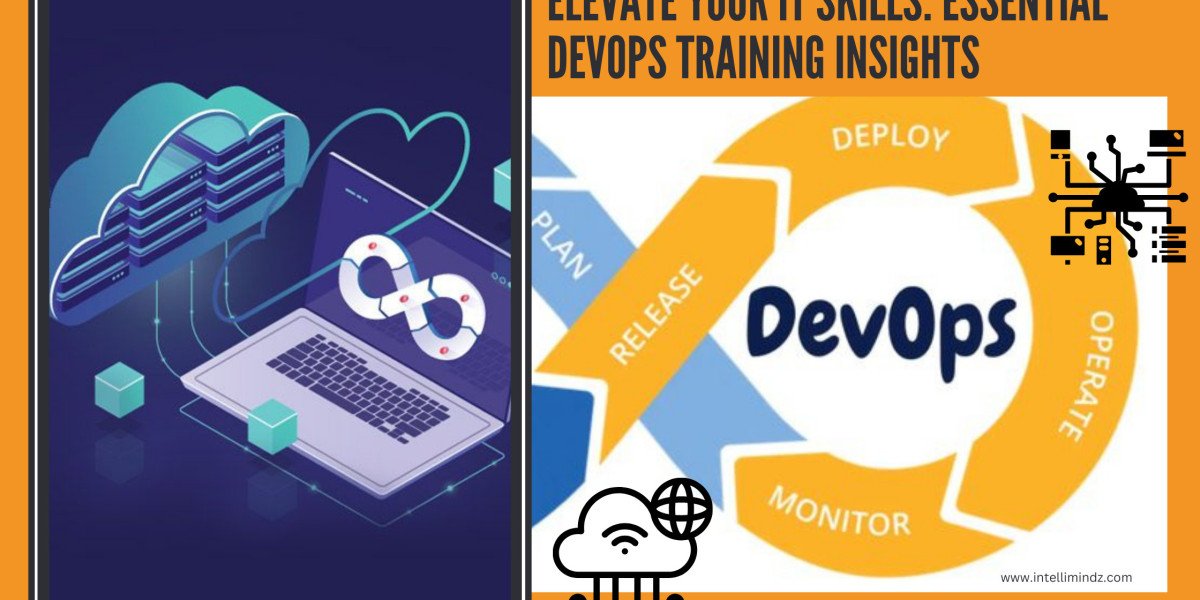Kickstart Your Career with DevOps: Why Training Matters
In today's fast-paced tech landscape, businesses are racing to deliver software faster, more reliably, and with fewer hiccups. DevOps—a blend of "development" and "operations"—is the solution that bridges these gaps, automating processes and fostering collaboration between teams. If you’re looking to break into this exciting field, DevOps training is the key to unlocking your potential and setting you on the path to success.
Why DevOps is the Future of IT
Before we dive into why training is essential, let’s understand why DevOps is such a game-changer. DevOps practices improve workflow efficiency, increase software quality, and reduce downtime by automating the development and operations cycle. This has made it the backbone of modern IT infrastructure.
Whether it’s ensuring smooth cloud deployments, managing complex applications, or automating tedious tasks, DevOps is now critical for companies across all industries. And the demand for skilled DevOps professionals is skyrocketing as businesses recognize its value in helping them stay competitive.
The Skills You’ll Need to Succeed
While DevOps offers immense opportunities, it also requires a broad skill set. A well-rounded DevOps professional is knowledgeable in coding, cloud infrastructure, automation tools, and continuous integration/continuous delivery (CI/CD) pipelines. But don’t worry—you don’t need to know it all from day one. That’s where training comes in.
DevOps training will give you the skills you need to:
- Master Version Control (Git): Version control systems like Git are essential for managing code changes and collaborating with teams.
- Build CI/CD Pipelines: Learn how to automate the testing and deployment process, reducing errors and speeding up release cycles.
- Containerization and Orchestration (Docker, Kubernetes): Understand how containers work and use Kubernetes to manage them at scale.
- Cloud Computing: Gain expertise in cloud platforms like AWS, Azure, or Google Cloud to deploy and manage applications in the cloud.
- Automation: Learn to automate repetitive tasks using tools like Ansible or Terraform for infrastructure as code.
Why DevOps Training Matters
Hands-On Experience with Tools
DevOps is all about practical, hands-on experience. Training programs provide you with exposure to industry-standard tools like Docker, Kubernetes, Jenkins, and Terraform, giving you the practical skills necessary to thrive in a real-world environment.Structured Learning Path
With so many tools, platforms, and processes, self-learning can be overwhelming. A structured DevOps training program will guide you step-by-step, ensuring you build a strong foundation before diving into more advanced topics.Expert Guidance
Having industry experts and instructors walk you through key DevOps concepts is invaluable. They can provide you with insights, answer questions, and guide you through complex challenges that you might not find in self-learning resources.Job-Ready Skills
The best DevOps training programs are designed with industry requirements in mind. By the end of your training, you’ll have the skills employers are actively seeking, putting you ahead of other candidates in the job market.Certifications That Matter
Certifications play a big role in demonstrating your expertise. Many DevOps training courses offer certifications that are recognized in the industry, like AWS Certified DevOps Engineer, Azure DevOps Engineer Expert, or Certified Kubernetes Administrator (CKA). These certifications prove to employers that you have the necessary skills to take on a DevOps role.
What to Look for in a DevOps Training Program
When choosing a DevOps training course, you’ll want to make sure it covers all the essentials:
- Comprehensive Curriculum: Look for a program that covers the full DevOps cycle, including version control, CI/CD pipelines, automation, and cloud computing.
- Hands-On Labs: Practical experience is key. Ensure the program includes hands-on labs where you can practice using real DevOps tools.
- Instructor Support: Having access to instructors or mentors who can provide guidance and feedback is invaluable, especially when tackling complex topics.
- Job Placement Assistance: Some training programs offer job placement assistance or career coaching, helping you transition into a DevOps role more smoothly.
How DevOps Training Boosts Your Career
High Demand, High Pay
DevOps professionals are among the highest-paid IT professionals today. With demand far exceeding supply, those with DevOps expertise command impressive salaries and benefits.Diverse Career Opportunities
DevOps opens the door to a wide range of career paths. Whether you want to focus on cloud architecture, automation, or become a site reliability engineer (SRE), the options are vast and varied.Stay Ahead of the Curve
As more organizations adopt DevOps practices, having DevOps skills will ensure you stay relevant in the job market. IT professionals with DevOps expertise are seen as key assets for improving efficiency, collaboration, and the overall software development lifecycle.Fast-Track to Leadership
With your unique blend of development and operations skills, you’ll be positioned to take on leadership roles in IT. Many DevOps professionals quickly transition into roles such as DevOps Engineer, Cloud Architect, or IT Operations Manager due to their well-rounded expertise.







